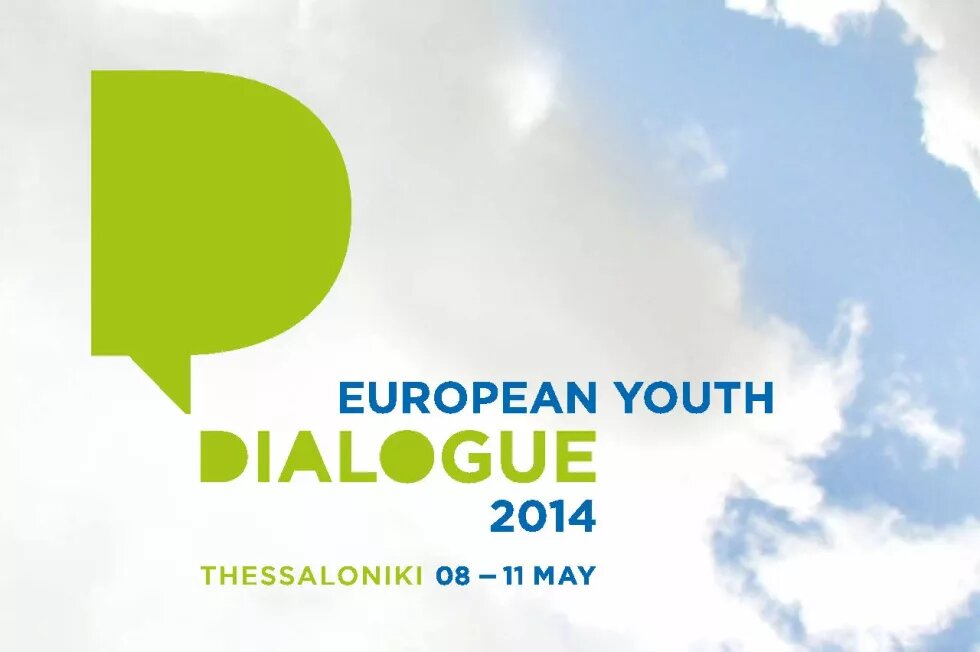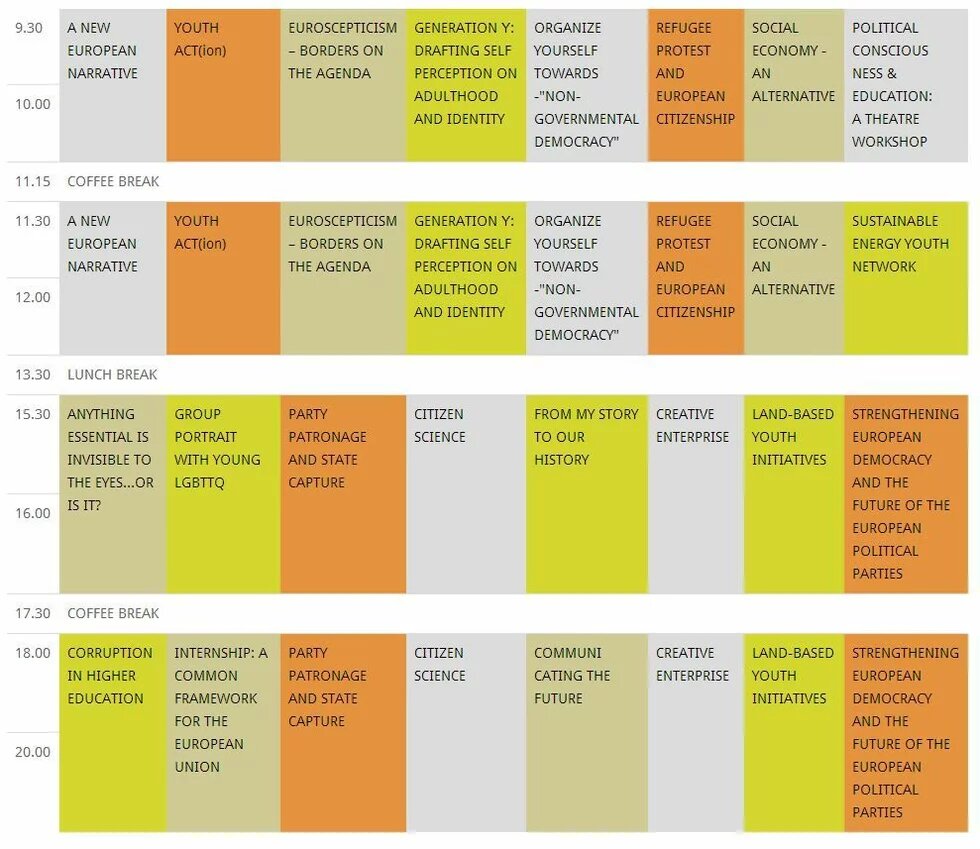

Around 120 young Europeans came together at The European Youth Dialogue (EYD) in the city of Thessaloniki, the European Youth Capital 2014. The event, which took place a few weeks before the elections for the European Parliament, is part of a series of youth events organised by the Heinrich-Böll-Foundation in different countries aiming to provide spaces for youth debates and networking throughout Europe in the pre-electoral period.
The EYD provided space for young Europeans from EU-member states as well as from the acceding Balkan countries to get to know each other, exchange ideas, design common projects and discuss on ways to create a better common future in Europe by sending the message: “Young people will take the future in their own hands by reclaiming it!”
The Foundation’s office in Greece organized a cooperative preparatory process actively including all partners: the Green European Foundation (GEF), the Green Institute Greece, the European Youth Capital Thessaloniki 2014 as the supporting agency of the hosting city, the Federation of Young European Greens (FYEG), the Young European Federalists (JEF), the Heinrich Böll Stiftung offices in Brussels, Prague, Warsaw, Beograd, Sarajevo, Zagreb, Istanbul, the headquarters in Berlin and local youth organizations such as the NGO Network of Thessaloniki (ThessDIKTYO), PEIRAMA, Creativity Platform, Episkopon and Fix in Art.
Participation and collaboration as core issues and goals of this event, also determined its preparatory process. The interactive website www.european-youthdialogue.eu gave the opportunity for participants to communicate beforehand and contribute their own ideas to the proposed 20 different workshops which included themes such as: the future of Europe and Euroscepticism; youth participation in political decision-making processes; a common framework for internships; social and creative entrepreneurship and economy; migration policies and refugee protest; LGBTQ rights and gender diversity; sustainable energy cooperatives; corruption in education; and impact of party patronage and state capture in youth’s development. Participants presented to the plenary the results of the workshops, some of them agreed on the continuation of their collaboration.
Τhe workshops' program
Three panel discussions, open to the public, on issues corresponding to workshops of the day before were held on the third day:
The discussions started with the question: Who is the Generation Y? What are the aspirations, expectations and concerns of the generation which is gradually receiving the baton from the previous one? How do they regard work-life balance and career? What do they expect from employers and what do the employers expect from them? Despite the advanced communication capabilities, into which they are daily exposed, “they do not lack on information or education, but on modesty”, provocatively stated Professor Naskou-Perraki. She claimed that Generation Y has megalomania: “They appear at a job interview expecting to get directly hired at least as vice-directors and they would rather not work as waiters if they have acquired a Phd degree”. Her statement fired the following discussion on the panel and with the audience.
The second panel was dedicated to the consequences of the transformation of young people’s political participation. “We are still learning how social media is changing our political participation”, stated Ivana Jordanovska, representative of the Young European Federalists (JEF). Concluding, she made the point that the different interests between Generation Y which uses social media in its daily life and stakeholders and policy makers, who are not, have to be balanced out in order to establish an effective communication and participation of the young generation.
The final panel was about the NEETs-generation: Not engaged in any form of Employment, Education or Training. Especially, in the crisis torn European countries a NEETs generation is growing up, many young people in Europe, who have spend many years in education accept a lot of unpaid internships while the employers, representing the older generation, confront them with demands on job experience that they actually did not have the chance to acquire. Mr. Lettmayr, Deputy Director of CEDEFOP (European Centre for the Development of Vocational Training) stressed that “the fastest growing unemployment is for the low qualified adults” and referred to the paradox of demographics as the current crisis is a crisis of demand: a declining number of young people instead of finding a job easily, they enter the labour market with great difficulty. Reinhard Bütikofer, MEP and Co-Chair of the European Green Alliance, referred to the Youth Guarantee as an important instrument to counter youth unemployment proposed by the Greens, which was adopted by the EU, but which has been implemented without enough financial resources to really become efficient.
The participants of the European Youth Dialogue had also the chance to explore the city of Thessaloniki. The volunteers of Thessaloniki European Youth Capital 2014 guided the young Europeans through the city and its sights. The walk was mostly focused on the socially-engaged organizations, creative and innovative experiments, cooperative projects and citizens’ initiatives. The day ended with a live-music party open to the public with three local bands.
[gallery]
Find more pictures here.
All in all, European Youth Dialogue 2014 opened new communication channels for the very diverse participants. Now, it remains up to them to keep up the good work, strengthen their networks and make their ideals come true by putting them into practice.
Participants’ impressions:
“Not only the content of the seminar was satisfying, also the warmth and kindness of the people I met was of great value. In a more informal way we got to know each other in the vibrant city of Thessaloniki”.
Liza Noteris, Βelgium
“I would describe the experience of attending the European Youth Dialogue in three words: Dialogue, creativity and exchange. EYD was an excellent platform for dialogue among young Europeans that allowed us to create and think together of new projects which are the basis for a future exchange of opportunities”.
Paula Espinosa Gimenez, Spain
“It was great to have the opportunity to network with other young greens from around Europe and to get to know the different ways that we campaign, the different objectives we have, the main controversial issues we work on and how we deal with these”.
Adria Belenguer Soria, Spain

